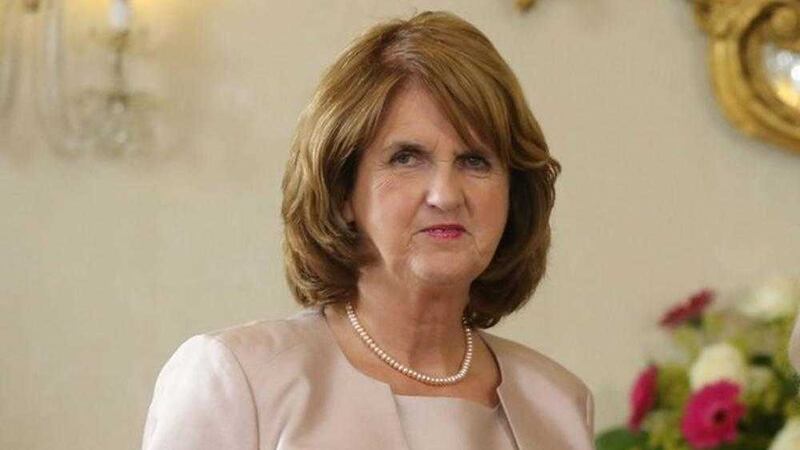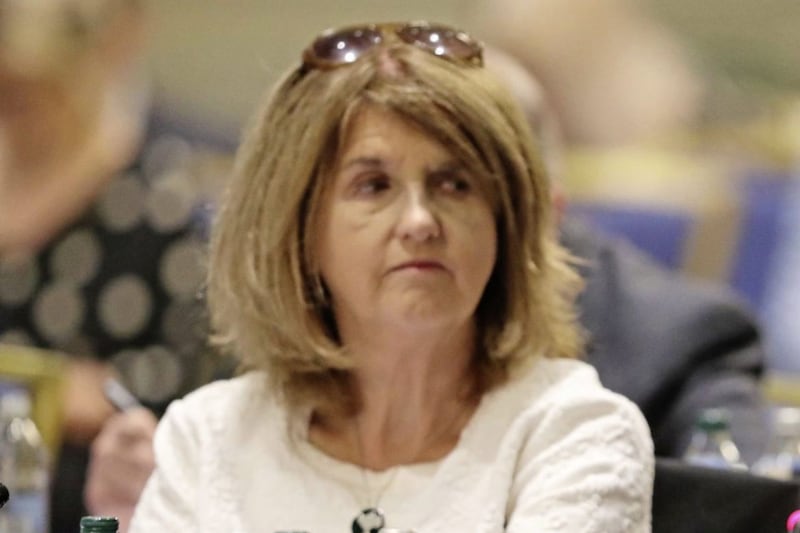THE Labour Party has struck first on the first full day of the Republic's election campaign with a commitment for workers to earn at least €11.30 an hour.
With economic plans dominating, Tánaiste Joan Burton reiterated the promise to have full employment in the country in the next two years and she also vowed to create 50,000 apprenticeships by 2021.
The minimum wage increased to €9.15 at the end of last year but the Labour leader said it is realistic to commit to a further two euro-an-hour increase despite opposition from business.
The tanaiste said her party's plan would create 150,000 jobs by 2018.
In a package costed at €954 million in total, she also pledged to rewrite welfare rules to develop a new Working Family Benefit which would allow low paid working parents to earn at least €12 an hour, with qualification for the new system based on people's income rather than the hours they work.
"Behind every job is a person or family benefiting from recovery in their own lives," Ms Burton said.
Other initiatives set out by Labour at the Boann Distillery in Drogheda included creating 15,000 manufacturing jobs over the next four years, another 10,000 places through the JobsPlus programme which gives employers grants when they hire someone who has been long-term unemployed, and keeping corporation tax at 12.5 per cent.
The tánaiste also reiterated Labour's childcare plan which was unveiled last month, including an immediate cap on creche costs at €4.25 an hour which would come down to two euro an hour by 2021.
Separately, Fine Gael finally lifted the curtain on its much-vaunted long-term economic plan.
The three-pronged approach focuses on job creation, income tax cuts and public sector recruitment and pay.
The party pledged to create 50,000 jobs every year between now and 2020 - cutting the unemployment rate from just under 10 per cent to 6 per cent of the workforce.
The new jobs would also entice 70,000 people who fled the country during the economic crash back home, the party claimed.
Fine Gael said it would make sure the job creation was evenly spread throughout Ireland.
It vowed to axe the unpopular universal social charge within four years.
Under the plan, it would also bring in "targeted measures" to help parents return to work and overcome welfare traps.
This would include cutting childcare costs, scrapping GP fees for children and introducing a new "working family payment" to ensure every parent working 15 hours or more a week takes home at least €11.75 per hour.
The party said it would support "sensible increases" in the minimum wage helped by cuts in the lower rate of employers' PRSI.
If returned to power, Fine Gael said it would also spend €4.2 billion on public services, including the recruitment of 10,000 new doctors, nurses, gardaí, teachers, social workers and other frontline workers.
They would also bring in "targeted improvements" to welfare payments and services for the elderly, disabled, sick and carers.
In the plan, Fine Gael also promised to set up a "Contingency and Stability Reserve" in three years' time as an insurance policy against future economic shocks.








